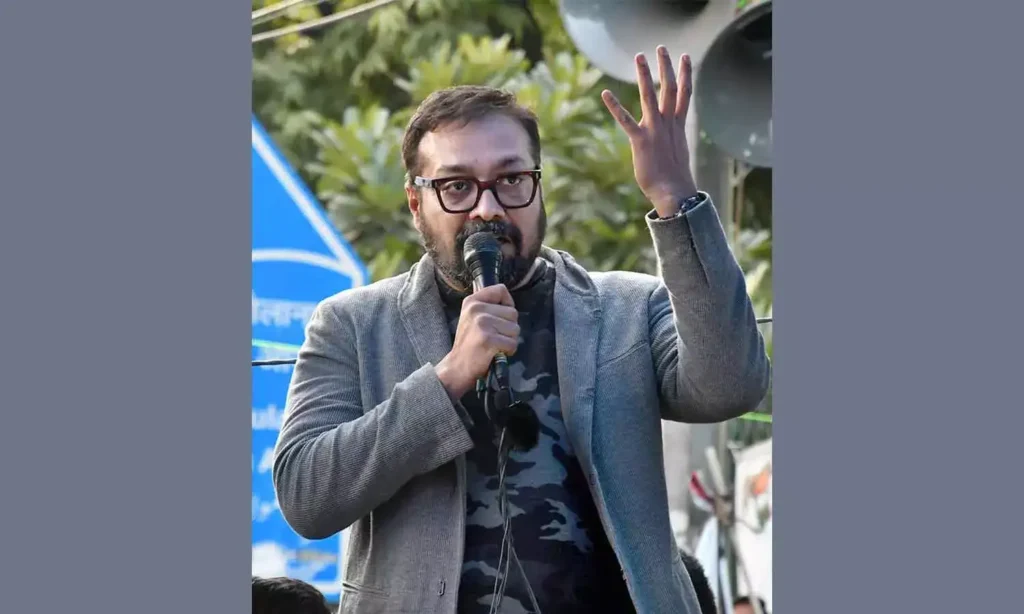Anurag Kashyap Apologizes to Brahmin Community Amid Phule Controversy
Filmmaker Anurag Kashyap has issued an apology to the Brahmin community following his controversial remarks during the Phule film debate. His comments, made in defense of the film, sparked backlash from the community, leading Kashyap to publicly apologize and express regret for the hurt caused by his words. In his apology, Kashyap emphasized that he never intended to offend anyone.

The controversy began when a section of the Brahmin community in Maharashtra expressed concerns about Phule’s portrayal of their caste. In reaction, the Central Board of Film Certification (CBFC) requested changes to the film, leading to a delay in its release. Kashyap, known for his candid remarks, criticized the delay, which only intensified the backlash. Many perceived his comments as disrespectful, and public calls for an apology grew louder. Kashyap then addressed the issue by issuing several public apologies.
Apologizing for His Actions
In his apology, Kashyap admitted to crossing a line when reacting out of anger. He acknowledged his mistake in a statement written in Hindi, which was later translated into English: “In a moment of anger, I forgot my limits and ended up insulting the entire Brahmin community.” This marked a shift in his usual approach, showing self-reflection. Kashyap highlighted his long-standing relationship with the Brahmin community, mentioning that many of its members had supported him throughout his career. He expressed regret for hurting those who had contributed positively to his life.
Kashyap also recognized the emotional toll his words had taken. “My family is hurt. Many intellectuals, whom I deeply respect, are also hurt by my words,” he wrote, showing a deeper understanding of how his actions affected those around him.
Kashyap further explained that his comments had diverted attention from the real issue—the important social reform depicted in Phule. He emphasized that he never intended to insult the Brahmin community but reacted impulsively to a hurtful comment. “I sincerely apologize to the community I never intended to offend,” he wrote, adding, “But in the heat of the moment, I wrote things in response to someone’s vile comment.”
A Moment of Reflection
Kashyap’s apology went beyond addressing the backlash; it was also a moment for reflection. In a follow-up post, he clarified that his apology wasn’t for supporting the film, but for one specific line that had been taken out of context. He voiced frustration over how his words had been twisted, contributing to growing hatred.
Kashyap then addressed the Brahmin community directly. He urged them to spare women from verbal abuse, pointing out that even the Manusmriti and other scriptures preach decency. “Even the scriptures teach this much decency, not just Manusmriti,” he wrote, calling for civility and understanding in the ongoing debate. He also encouraged the Brahmin community to reflect on the kind of society they wished to create. “As for me, I offer my apology,” he concluded.
The Phule Controversy and the Caste Debate
The controversy surrounding Phule has ignited important conversations about caste representation in Indian cinema. The film, which highlights Jyotirao Phule’s efforts to challenge caste-based oppression, has received praise for its progressive message. However, members of the Brahmin community felt the film misrepresented their caste, and some believed it unfairly depicted them in a negative light.
In response to these concerns, the CBFC requested several changes to the film. Filmmakers had to replace “caste” with “varna” in specific scenes, modify visuals, and provide historical references for accuracy. As a result, the release of Phule has been delayed by two weeks. Despite this setback, the filmmakers remain determined to bring Phule’s story to the screen.
Though Phule is still awaiting release, the controversy and Kashyap’s apology have sparked broader discussions about caste representation in Indian media. Kashyap’s apology, while met with mixed reactions, highlights the difficulties of addressing caste issues in the country.
Conclusion: Moving Forward with Caution
Despite the controversy, Phule is set to release soon, with a revised version that addresses the concerns raised by the Brahmin community. The cast, including Pratik Gandhi as Jyotirao Phule and Patralekhaa as Savitribai Phule, has received praise for their performances, and the film’s message of social reform continues to resonate with many.
Kashyap’s apology marks a significant shift in how public figures handle contentious issues. While he continues to support the film, his commitment to choosing his words carefully moving forward shows growth. His apology underscores the need for respectful dialogue in a society where caste and historical representation remain sensitive topics.
The Phule controversy and Kashyap’s response remind us that art and activism often intersect in ways that provoke strong reactions. How creators and the public handle these reactions will shape future conversations about caste, history, and social reform in India.






